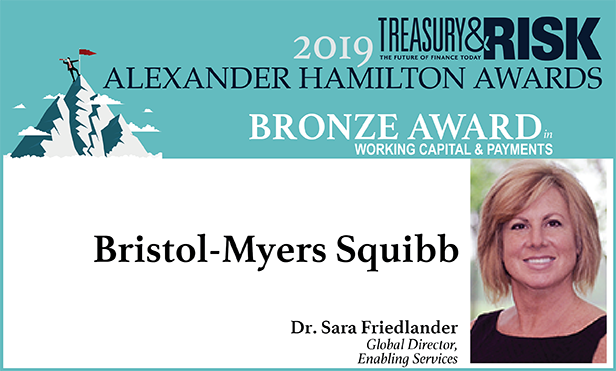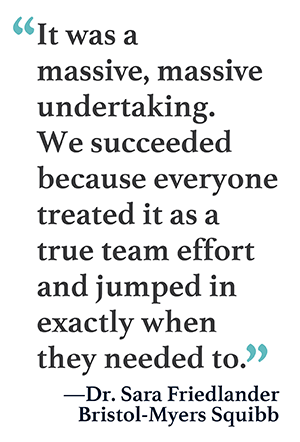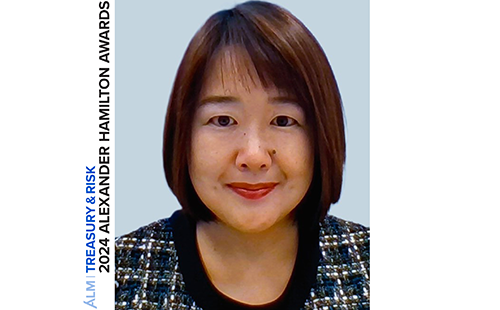
Bristol-Myers Squibb (BMS) is dedicated to discovering, developing, and delivering innovative medications to improve the health of patients around the world. A couple of years ago, the company's internal travel and entertainment expense (T&E) processes desperately needed an injection of efficiency. Employees who traveled on company business were given a corporate card. Unfortunately, the card was not widely accepted in some of the regions where the global biopharmaceutical firm had operations.
Employees who traveled where the corporate card wasn't accepted used their personal credit card to cover T&E, then expensed their purchases through BMS's expense management tool. Some became so accustomed to this process that they started using personal cards for all expenses, even with vendors that would have accepted the corporate card. This was problematic because it reduced the ability of sourcing managers to monitor corporate travel spending.
“When accounting for expenses, we use a hierarchy of categories and subcategories,” says Dr. Sara Friedlander, the global director of enabling services for Bristol-Myers Squibb, who is responsible for the company's travel sourcing and operations as well as sourcing for strategic meetings. “When you are using a personal card, you are relying on your colleagues to select the right expense type for each transaction, but they may not know exactly which category applies. Reconciling expenses to the right category was a never-ending task for my team, when they should have been doing more strategic work. We needed to have the same people who were actually making the purchases also correctly identifying what they were expensing.”
 BMS launched an initiative to develop a new procurement solution. The project team held internal focus groups and performed external benchmarking. They evaluated prospective banking partners and discovered that Citi could support their global travel and meeting-planning needs. BMS launched four new payment methods, each of which supports a specific type of sourcing for the company.
BMS launched an initiative to develop a new procurement solution. The project team held internal focus groups and performed external benchmarking. They evaluated prospective banking partners and discovered that Citi could support their global travel and meeting-planning needs. BMS launched four new payment methods, each of which supports a specific type of sourcing for the company.
First, the project team developed a virtual card account (VCA) program for meetings, working closely with Citi to tailor the bank's standard virtual card solution to meet their unique needs. They created custom data fields that provide information required to segregate expenses into buckets such as transportation, food, and meeting rentals. The data fields vary by geographic region, depending on what information each jurisdiction needs for tax purposes. They also built in spending controls that enable the procurement group to set an upper spending limit for each virtual card.
Now, when the company plans a meeting, the event is assigned a unique VCA card number. Internal meeting planners make large purchases of products and services using that card number. Meeting planners assign their purchases to the appropriate category and spend only until they reach the preapproved budget. The project also rolled out an automated process for invoice reconciliation.
The second new payment method at BMS is a Citi travel card for individual employees traveling to business meetings. “Anything related to individuals' travel goes through the corporate travel card,” Friedlander says. “Airfare, hotel, taxis or ride services like Uber, and meals that you pay for—all go on your travel expense card.” The card enables close tracking of employees' travel-related expenses, and it works only with vendors of appropriate services. “You can't walk into a movie theater and use this card,” Friedlander says.
Third, BMS rolled out a corporate purchasing card (p-card) that is very similar to the travel card but can be used for low-budget business expenses such as office supplies.
And fourth, the company implemented Citi's central travel account (CTA) solution, a globally available and centrally billed payment tool. BMS uses the CTA solution for its typical meeting expenses in areas of the world where Citi's VCA program is not accepted, including Mexico, some South American countries, and some Eastern European countries.
See also:
- On-demand webcast: How to Leverage Payment Innovations and Efficiencies
- Custom-Built Software Streamlines Currency-Controls Compliance
- Centralizing Payments Across 100 Markets Around the World
- 2019 Alexander Hamilton Awards in Technology Excellence
BMS rolled out this entire program across 32 countries in just eight months. “It was a massive, massive undertaking,” Friedlander says. “We succeeded because everyone treated it as a true team effort and jumped in exactly when they needed to.”
The project was also a categorical success. The global acceptance of this combination of payment programs has virtually eliminated the need for employees to ever put business expenses on their personal card. Filling out expense reports used to take an average of 30 minutes per report, so eliminating the need to manually enter travel expenses in the T&E tool is saving employees across the company nearly 4,000 hours per year. At the same time, the new payment options have significantly reduced the risk of manual data entry error or overspending.
© Touchpoint Markets, All Rights Reserved. Request academic re-use from www.copyright.com. All other uses, submit a request to [email protected]. For more inforrmation visit Asset & Logo Licensing.



